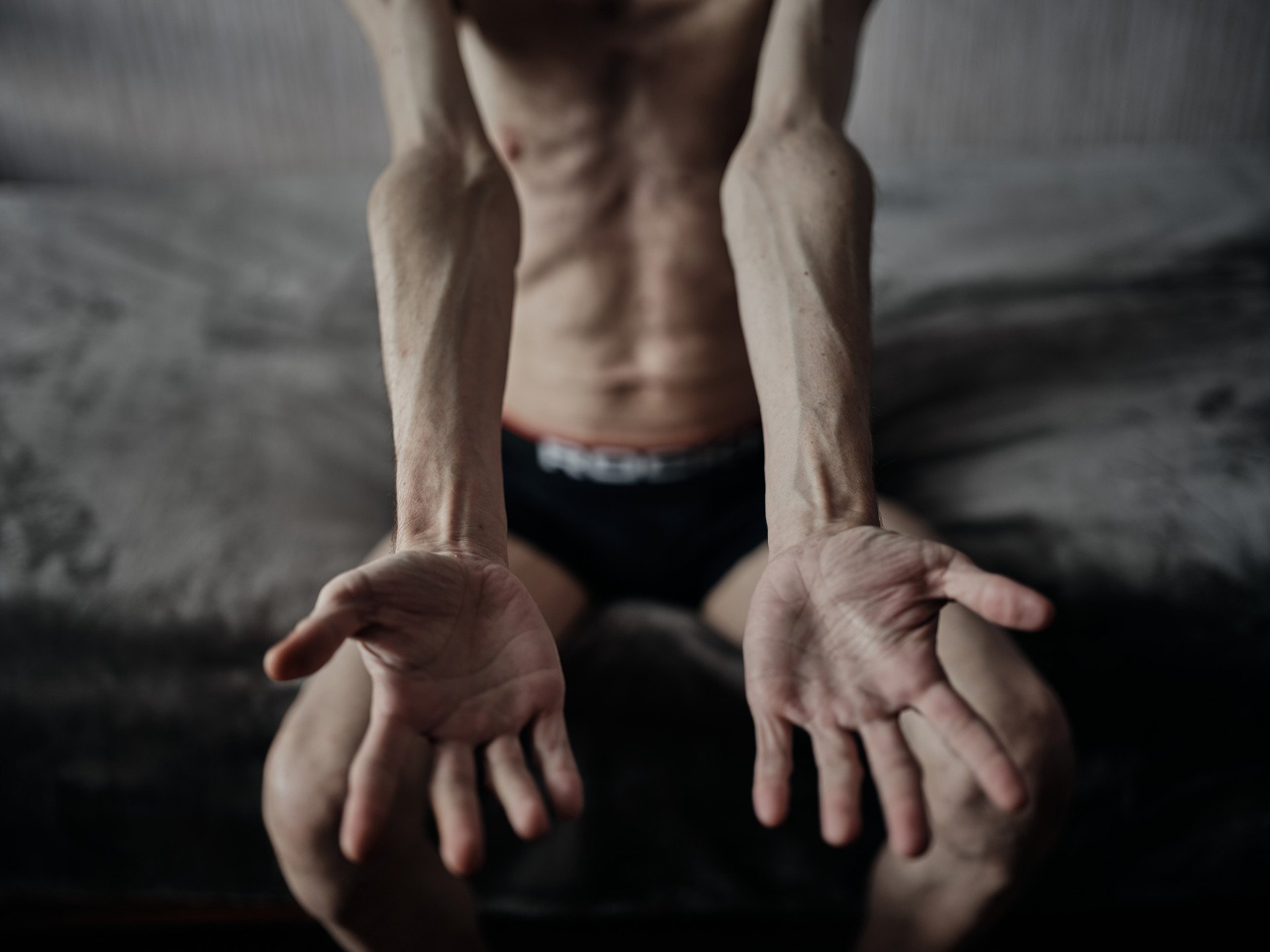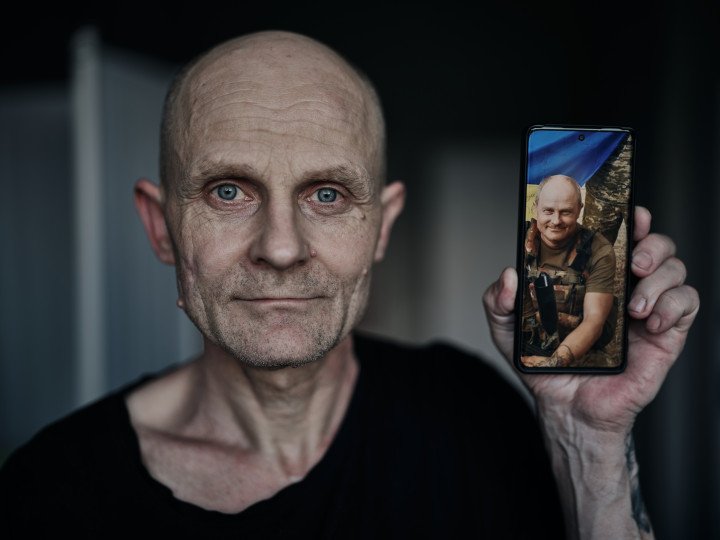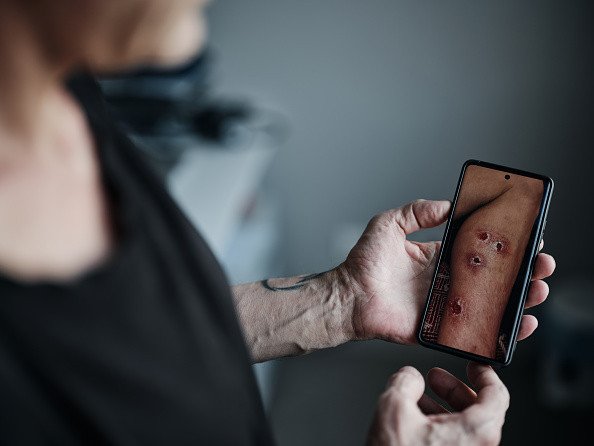- Category
- War in Ukraine
The Evidence That Russia Is Failing to Meet the Needs of Ukrainian Prisoners of War

Russia insists that it fully supplies Ukrainian prisoners of war with food and medical care. Yet, investigations reveal a different reality—evidence of systematic, widespread torture and abuse.
On September 9th, Russia’s Major General Apty Alaudinov claimed that conditions of Ukrainian troops held captive by Russia are even better than in Ukrainian units, Russian state media reported. Russia "fully provides prisoners of war (POWs) with food and everything they need, and they receive full medical care," according to Alaudinov.
However, endless investigations and personal accounts, which have been repeatedly evidenced, prove quite the contrary.
“Torture (of Ukrainian POWS) is common, with over 95% of prisoners being subjected to it,” said Danielle Bell, head of the UN Human Rights Monitoring Mission in Ukraine, on August 8th, 2024. “This is the worst thing I have seen in my 20-year career,” she added during an interview on Dutch TV.
The United Nations Human Rights Monitoring Mission in Ukraine (HRMMU) published a report in March 2024, citing the ill-treatment of POWs between December 2023 and February 2024. They confirmed that over half of the POWs interviewed had endured some form of sexual violence and claimed at least 32 POWs had been executed on just 12 separate occasions.
Patterns of brutal treatment, inflicting severe pain and suffering with a blatant disregard for human dignity have been confirmed throughout the full-scale invasion.
“Most POWs also recounted the anguish of not being allowed to communicate with their families and being deprived of adequate food and medical attention,” Bell said.
Bodies of Ukrainian prisoners are being returned without internal organs. This constitutes a war crime, one of many Russian forces have committed. “This confirms that the black market for organ transplantation in the Russian Federation is active and, regrettably, involves our prisoners of war,” said the wife of one POW, a defender of Mariupol.

Prosecutor General of Ukraine, Andriy Kostin, stated that about 90% of Ukrainian prisoners of war were tortured, raped, threatened with sexual violence or other forms of ill-treatment. This statement was made in 2023. Since then, more evidence has come to light and continues to do so.
POWs have reportedly claimed to be fed leftover dog food, and all POWs that have been exchanged are returned as skin-and-bone.
Survivors of these crimes are coming forward, and Ukrainian authorities are working to seek justice and accountability, but human rights violations and war crimes committed by the Russian Federation continue, and the true scale of these crimes is unfathomable.

Failure of the International Committee of the Red Cross
On August 29th, 2024, relatives of POWs protested outside of the International Committee of the Red Cross (ICRC) office and shouted “shame,” calling out against the poor treatment of their relatives in captivity.
UN representatives are routinely granted full access to Russian POWs in Ukraine and are permitted to communicate with them. However, the UN has been denied access to Ukrainian prisoners in Russia.
#Ukraine protest at #RedCross about the inaction of international organizations that claim protect human rights. Some people still believe #Ukrainians were paid to fight for their freedom in 2014 #maidan #LetUkraineStrikeBack pic.twitter.com/2ER956yu1X
— Semenovych (@IvanSemenovych) September 10, 2024
The Ministry of Reintegration, which oversees adherence to international humanitarian law within Ukraine, said that they were particularly concerned about war crimes committed against Ukrainian POWs.
At the end of August 2024, the Ministry reiterated its call, “particularly to the ICRC, to demand access to Ukrainians held by the aggressor state and to ensure that Russia complies with international humanitarian law.”
Ukraine's Human Rights Ombudsman, Dmytro Lubinets, said that most Ukrainian prisoners of war have never been visited by the ICRC while in Russian captivity.
Prisoners of war in the Olenivka penal colony confirmed that the ICRC never visited them. In some cases, during their surrender to Russian Forces from the Azovstal steel plant, their details were never recorded despite the ICRC being present. Recording details is vital to ensure that the families of the POWs are aware of where they are being held; this information also confirms that their family members are alive.
🧵 Do you want to hear about feelings of Russian soldiers? I will tell you about those I recently met, who are prisoners of war in a Ukrainian detention center & whom Ukraine hopes to exchange as quickly as possible for its own POWs detained in appalling conditions in Russia.
— Emmanuelle Chaze (@EmmanuelleChaze) September 7, 2024
1/ pic.twitter.com/Av7UDo08Gm
In April 2024, an investigation conducted by a group of international media outlets, including The Guardian, revealed violations of the rules of neutrality by the Russian Red Cross (RRC) of the International Red Cross Movement. The International Federation of Red Cross and Red Crescent Societies (IFRC) however, decided not to suspend the membership of the RRC.
The investigation included leaked documents from the Kremlin that revealed plans to fund the RRC in temporarily occupied areas of Ukraine. Reports stated that the investigation also revealed that the heads of regional Red Cross branches spoke of the need for a war against "Ukrainian Nazis." Also revealing that uniformed RRC workers often attended military training events for children.
Last year, the Belarusian Red Cross was suspended by the IFRC after it emerged that its head had expressed support for the abduction of Ukrainian children and had worn the Z symbol - a symbol of Russian aggression in Ukraine.
Russian soldiers mistreating their own:
Over the course of the full-scale invasion, videos have circulated online of how the Russian military has mistreated their own soldiers. Several videos from different instances show that those who attempt to leave the frontlines or disobey orders have been tied to trees and have not been provided sufficient food and water.
1/ Wounded Russian conscripts and mobilised soldiers are reportedly being handcuffed and tortured in a dilapidated building in Mulino, Nizhny Novogorod, to 'remotivate' them into going back to fight in the war in Ukraine. ⬇️ pic.twitter.com/JP4XaPhJZx
— ChrisO_wiki (@ChrisO_wiki) August 19, 2024
Russian forces have been found to be denied recuperation, have been sent into frontline assaults on canes and crutches, and denied medical leave.
Russian forces are claimed to have kept their own servicemen “in an open-air dungeon with a grating covering a pit dug into the ground” as punishment. Ill-treatment against their own takes place. Therefore, along with mountains of evidence and investigations, the widespread and systematic violent treatment of Ukrainian POWs is unequivocally undeniable.
1/ The Russian army in Ukraine has revived a medieval method of punishment – imprisoning soldiers in a zindan, an open-air dungeon with a grating covering a pit dug into the ground (see example below). Two cases, possibly from the same unit, have been reported this week. ⬇️ pic.twitter.com/uVFBLt2jMM
— ChrisO_wiki (@ChrisO_wiki) April 22, 2023
-46f6afa2f66d31ff3df8ea1a8f5524ec.jpg)
-35249c104385ca158fb62273fbd31476.jpg)


-554f0711f15a880af68b2550a739eee4.jpg)



-206008aed5f329e86c52788e3e423f23.jpg)